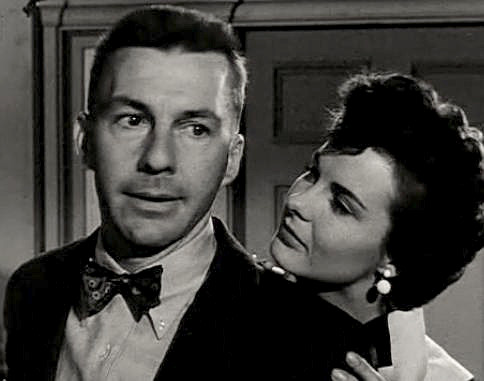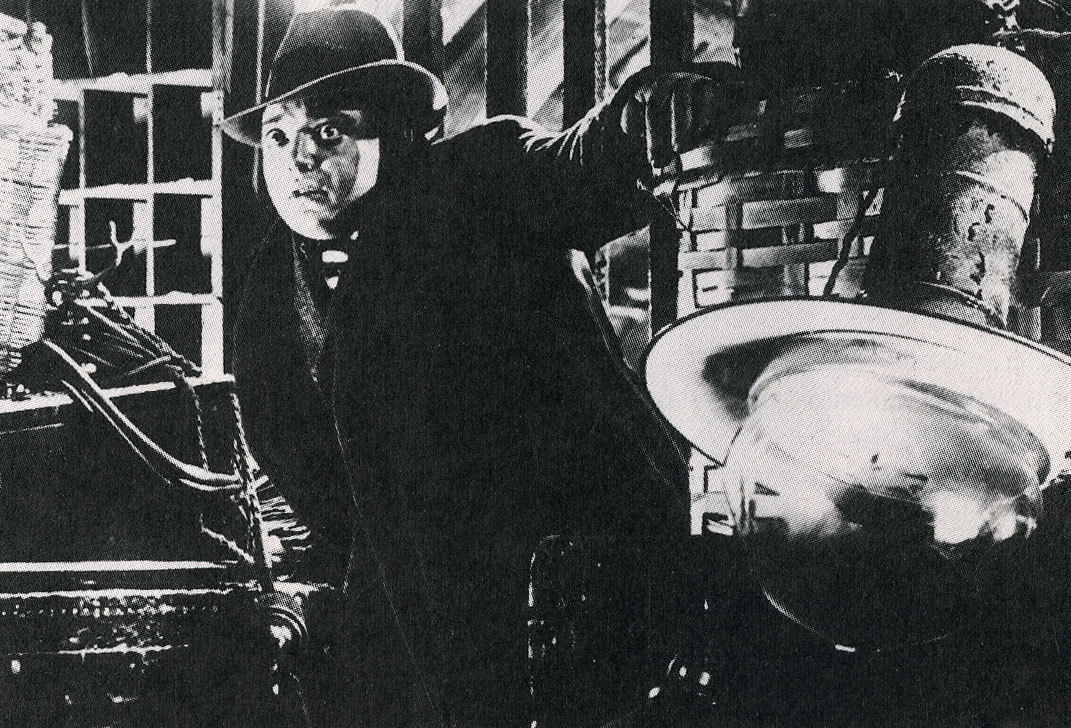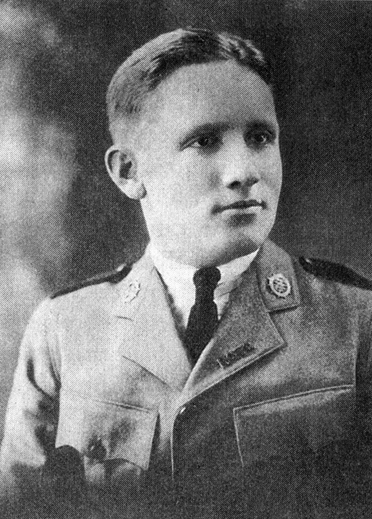|
David Wayne
David Wayne (born Wayne James McMeekan, January 30, 1914 – February 9, 1995) was an American stage and screen actor with a career spanning over 50 years. Early life and career Wayne was born in Traverse City, Michigan, the son of Helen Matilda (née Mason) and John David McMeekan. His mother died when he was four. He grew up in Bloomingdale, Michigan. Wayne attended Western Michigan University for two years and then went to work as a statistician in Cleveland. He began acting with Cleveland's Shakesperean repertory theatre in 1936. When World War II began, Wayne volunteered as an ambulance driver with the British Army in North Africa. When the United States entered the war he joined the United States Army. Wayne's first major Broadway role was Og the leprechaun in '' Finian's Rainbow'', for which he won the Theatre World Award and the first ever Tony for Actor, Supporting or Featured (Musical). While appearing in the play, he and co-star Albert Sharpe were recruited by ... [...More Info...] [...Related Items...] OR: [Wikipedia] [Google] [Baidu] |
Traverse City, Michigan
Traverse City ( ) is a city in the U.S. state of Michigan. It is the county seat of Grand Traverse County, although a small portion extends into Leelanau County. It is the largest city in the 21-county Northern Michigan region. The population was 15,678 at the 2020 census, with 153,448 in the Traverse City micropolitan area. Traverse City is well-known for being a cherry production hotspot, as the area was the largest producer of tart cherries in the United States in 2010. The city hosts the National Cherry Festival, attracting approximately 500,000 visitors annually. The area is also known for its viticulture industry, and is one of the centers of wine production in the Midwest. Traverse City is located nearby the Sleeping Bear Dunes National Lakeshore, as well as a number of freshwater beaches, downhill skiing areas, and numerous forests. For these reasons, Traverse City is a year-round tourism hotspot, winning multiple accolades and awards. Traverse City has also been n ... [...More Info...] [...Related Items...] OR: [Wikipedia] [Google] [Baidu] |
The Teahouse Of The August Moon (play)
''The Teahouse of the August Moon'' is a 1953 play written by John Patrick adapted from the 1951 novel by Vern Sneider. The play was later adapted for film in 1956, and the 1970 Broadway musical '' Lovely Ladies, Kind Gentlemen''. The play opened on Broadway in October 1953. It was a Broadway hit, running for 1,027 performances and winning awards including the New York Drama Critics Circle Award for Best American Play of the Year, the Pulitzer Prize in Drama, and the Tony Award. The play, well regarded for several decades, came to seem old-fashioned with increased understanding and sensitivity of racial issues. The portrayals of the Okinawa characters in the play were seen as offensive, and the generational humor began to lose its impact in the 1970s. Plot summary In the aftermath of World War II, the island of Okinawa was occupied by the American military. Captain Fisby, a young army officer, is transferred to a tiny Okinawa island town called Tobiki by his commanding officer, ... [...More Info...] [...Related Items...] OR: [Wikipedia] [Google] [Baidu] |
Title Role
The title character in a narrative work is one who is named or referred to in the title of the work. In a performed work such as a play or film, the performer who plays the title character is said to have the title role of the piece. The title of the work might consist solely of the title character's name – such as '' Michael Collins'' or ''Othello'' – or be a longer phrase or sentence – such as '' The Autobiography of Malcolm X'', '' Alice in Wonderland'' or '' The Adventures of Tom Sawyer''. The title character is commonly – but not necessarily – the protagonist of the story. Narrative works routinely do not have a title character, and there is some ambiguity in what qualifies as one. Examples in various media include Figaro in the opera ''The Marriage of Figaro'', Giselle in the ballet of the same name, the Doctor in the TV series '' Doctor Who'', Harry Potter in the series of novels and films, Romeo Montague and Juliet Capulet in the play ''Romeo and Juliet'', Am ... [...More Info...] [...Related Items...] OR: [Wikipedia] [Google] [Baidu] |
M (1951 Film)
''M'' is a 1951 American film noir directed by Joseph Losey. It is a remake of Fritz Lang's 1931 German film of the same name about a child murderer. This version shifts the location of action from Berlin to Los Angeles and changes the killer's name from Hans Beckert to Martin W. Harrow. Both versions of ''M'' were produced by Seymour Nebenzal, whose son, Harold, was associate producer of the 1951 version. The film was restored in 2015, with Harold Nebenzal as Executive Producer of the restoration. Plot Martin W. Harrow (David Wayne) is a compulsive child-murderer, and the public demands of the mayor and police that he be caught. The police start a crackdown on criminal operations, dive bars and hangouts in the city, hoping that the murderer will turn up in one of the many raids. This pressure is preventing the city's crime syndicate from doing business, and its boss, Marshall (Martin Gabel), organizes his forces to find and stop the murderer so that the police will stop the ... [...More Info...] [...Related Items...] OR: [Wikipedia] [Google] [Baidu] |
Peter Lorre
Peter Lorre (; born László Löwenstein, ; June 26, 1904 – March 23, 1964) was a Hungarian and American actor, first in Europe and later in the United States. He began his stage career in Vienna, in the Austro-Hungarian Empire, before moving to Germany where he worked first on the stage, then in film in Berlin in the late 1920s and early 1930s. Lorre caused an international sensation in the Weimar Republic-era film '' M'' (1931), directed by Fritz Lang, in which he portrayed a serial killer who preys on little girls. Of Jewish descent, Lorre left Germany after Adolf Hitler and the Nazi Party came to power. His second English-language film, following the multiple-language version of ''M'' (1931), was Alfred Hitchcock's '' The Man Who Knew Too Much'' (1934), made in the United Kingdom. Eventually settling in Hollywood, he later became a featured player in many Hollywood crime and mystery films. In his initial American films, ''Mad Love'' and ''Crime and Punishment'' (both 193 ... [...More Info...] [...Related Items...] OR: [Wikipedia] [Google] [Baidu] |
Adam's Rib
''Adam's Rib'' is a 1949 American romantic comedy-drama film directed by George Cukor from a screenplay written by Ruth Gordon and Garson Kanin. It stars Spencer Tracy and Katharine Hepburn as married lawyers who come to oppose each other in court. Judy Holliday co-stars as the third lead in her second credited movie role. Also featured are Tom Ewell, David Wayne, and Jean Hagen. The music was composed by Miklós Rózsa, and the song "Farewell, Amanda" was written by Cole Porter. The film was well received upon its release and is considered a classic romantic comedy. It was nominated for both AFI's 100 Movies and Passions lists, and ranked at No. 22 on the AFI's 100 Years...100 Laughs list. Plot Doris Attinger follows her husband with a gun in Manhattan one day, suspecting he is having an affair with another woman. In her rage, she fires wildly and blindly around the room and at the couple multiple times. One of the bullets hits her husband in the shoulder. His lover ... [...More Info...] [...Related Items...] OR: [Wikipedia] [Google] [Baidu] |
Katharine Hepburn
Katharine Houghton Hepburn (May 12, 1907 – June 29, 2003) was an American actress in film, stage, and television. Her career as a Hollywood leading lady spanned over 60 years. She was known for her headstrong independence, spirited personality, and outspokenness, cultivating a screen persona that matched this public image, and regularly playing strong-willed, sophisticated women. Her work was in a range of genres, from screwball comedy to literary drama, and earned her List of awards and nominations received by Katharine Hepburn, various accolades, including four Academy Awards for Academy Award for Best Actress, Best Actress—a record for any performer. In 1999, Hepburn was named the AFI's 100 Years...100 Stars, greatest female star of Classical Hollywood cinema, classic Hollywood cinema by the American Film Institute. Raised in Connecticut by wealthy, Progressive Era, progressive parents, Hepburn began to act while at Bryn Mawr College. Favorable reviews of her work on ... [...More Info...] [...Related Items...] OR: [Wikipedia] [Google] [Baidu] |
Spencer Tracy
Spencer Bonaventure Tracy (April 5, 1900 – June 10, 1967) was an American actor. He was known for his natural performing style and versatility. One of the major stars of Hollywood's Golden Age, Tracy was the first actor to win two consecutive Academy Awards for Best Actor from nine nominations. During his career, he appeared in 75 films and developed a reputation among his peers as one of the screen's greatest actors. In 1999, the American Film Institute ranked Tracy as the 9th greatest male star of Classic Hollywood Cinema. Tracy first discovered his talent for acting while attending Ripon College, and he later received a scholarship for the American Academy of Dramatic Arts. He spent seven years in the theatre, working in a succession of stock companies and intermittently on Broadway. His breakthrough came in 1930, when his lead performance in '' The Last Mile'' caught the attention of Hollywood. After a successful film debut in John Ford's '' Up the River'' (in ... [...More Info...] [...Related Items...] OR: [Wikipedia] [Google] [Baidu] |
Character Actor
A character actor is a supporting actor who plays unusual, interesting, or eccentric characters.28 April 2013, The New York Acting SchoolTen Best Character Actors of All Time Retrieved 7 August 2014, "..a breed of actor who has the ability to be almost unrecognizable from part to part, and yet play many, many roles convincingly and memorably. .." The term, often contrasted with that of leading actor, is somewhat abstract and open to interpretation. In a literal sense, all actors can be considered character actors since they all play "characters", but the term more commonly refers to an actor who frequently plays a distinctive and important supporting role. Character actors are generally well-known and recognizable by the audience (by appearance if not by name), even if they play different types of roles in different movies. A character actor may play characters who are very different from the actor's off-screen real-life personality, while in another sense a character actor ... [...More Info...] [...Related Items...] OR: [Wikipedia] [Google] [Baidu] |
Incident At Vichy
''Incident at Vichy'' is a one-act play written in 1964 by American dramatist Arthur Miller. It depicts a group of men who have been detained in Vichy France in 1942; they are being held for their "racial" inspection by German military officers and Vichy French police. The play focuses on the subjects of human nature, guilt, fear, and complicity and examines how the Nazis were able to perpetrate the Holocaust with so little resistance. Miller said of ''Incident at Vichy'', "What is dark if not unknown is the relationship between those who side with justice and their implication in the evil they oppose. ..The good and the evil are not compartments but two elements of a transaction." The play premiered on Broadway on December 3, 1964, at the ANTA Washington Square Theatre in New York City. The production closed on May 7, 1965, after 32 performances. The cast included Michael Strong as LeBeau, Stanley Beck as Bayard, Paul Mann as Marchand, and David J. Stewart as Monceau. A Lo ... [...More Info...] [...Related Items...] OR: [Wikipedia] [Google] [Baidu] |
After The Fall (play)
''After the Fall'' is a play by the American dramatist Arthur Miller. Productions The play premiered on Broadway at the ANTA Washington Square Theatre on January 23, 1964, and closed on May 29, 1964 after 208 performances. Directed by Elia Kazan, who collaborated with Miller on the script, the cast starred Barbara Loden as Maggie and Jason Robards Jr. as Quentin, along with Ralph Meeker as Mickey, Salome Jens as Holga, and an early appearance by Faye Dunaway as Nurse. Barbara Loden, who would become Kazan's wife in 1967, won the 1964 Tony Award for Best Featured Actress in a Play, and Jason Robards was nominated for the 1964 Tony Award for Best Actor in a Play. In 1984, the play was revived Off-Broadway at Playhouse 91, where it ran from October 4 to December 2 that year. Directed by John Tillinger, the cast starred Frank Langella and Dianne Wiest. In 2004, the play was revived on Broadway at the American Airlines Theatre in a Roundabout Theatre Company production from Jun ... [...More Info...] [...Related Items...] OR: [Wikipedia] [Google] [Baidu] |
Say, Darling
''Say, Darling'' is a three-act comic play by Abe Burrows and Richard and Marian Bissell about the creation of a Broadway musical. Although the play featured nine original songs with lyrics by Betty Comden and Adolph Green and music by Jule Styne, all of the songs were presented as either rehearsal or audition material and not as the thoughts or feelings of the characters. Background In a case of art imitating life not once, but twice, the show is an adaptation of Richard Bissell's semi-autobiographical novel of the same name which chronicled his experience adapting his novel ''7½ Cents'' for ''The Pajama Game'', making it in essence a play of a book about a musical adaptation of a book. It focuses on Jack Jordan (David Wayne), who is brought to Broadway to help develop his best-seller into a musical for leading lady Irene Lovelle (Vivian Blaine). His journey provides him - and the audience - with an education about what goes on behind-the scenes on the Great White Way, from ... [...More Info...] [...Related Items...] OR: [Wikipedia] [Google] [Baidu] |






